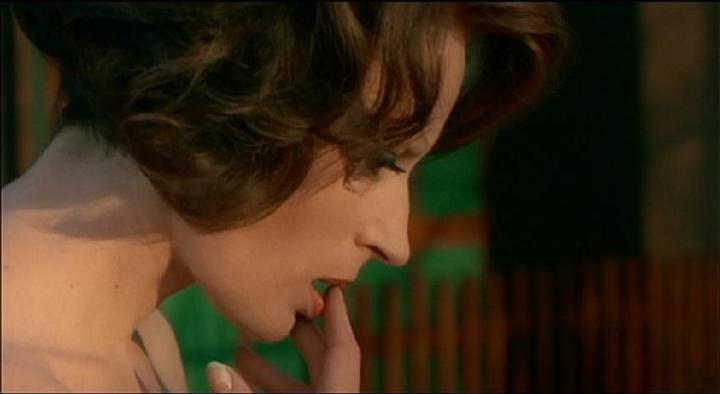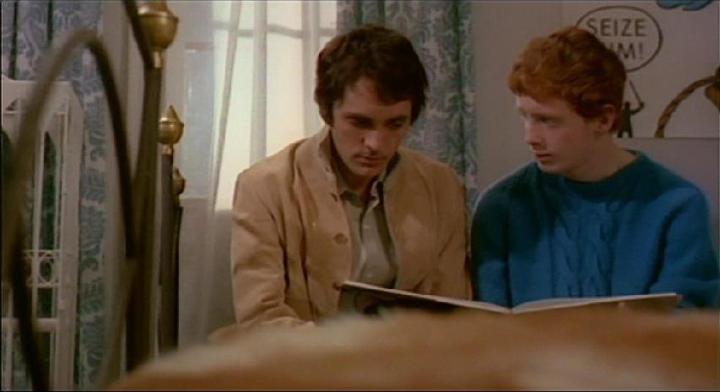From the original 2007 review: I have an ongoing argument with one of my oldest friends that centers around his ability to grant literature, poetry, painting and just about any other art form the complete freedom to be experimental, but not film. Show him a movie that doesn’t stick to a very obvious and traditional narrative structure, that doesn’t conform to the dictates of a “well-made” film, and he becomes downright belligerent—even while he’ll wax ecstatic over, say, William S. Burroughs’ Naked Lunch. I think this stems from his notion that movies are a lesser art form and should be for amusement only—not a concept that everyone subscribes to thankfully. I bring this up because Pier Paolo Pasolini’s Teorema (1968) is a film that tests any and all such notions of what a movie should or shouldn’t be. While the film does have a narrative, it’s hardly straightforward.
I suppose the film could be looked at as a kind of mystical, homoerotic variation on Jean Renoir’s Boudo Saved From Drowning (1932)—or perhaps the Americanized remake of Renoir’s film, Paul Mazursky’s Down and Out in Beverly Hills (1986), would be nearer the mark. It’s an approach that might be helpful in getting some kind of handle on Pasolini’s odd tale of a mysterious stranger (Terence Stamp) who invades the upper-class world of a rich family and proceeds—quite literally—to seduce the mother (Silvana Mangano), the son (Andrés José Cruz Soublette), the daughter (Anne Wiazemsky), the father (Massimo Girotti) and even the maid (Laura Betti). But such an approach will only take you so far, because Pasolini’s film goes much further in its examination of the fates of those touched by Stamp’s “Visitor” character, who disappears from the movie at the halfway mark.
Don’t expect easy answers. Don’t expect answers at all, merely suggestions. Who is the Visitor? Is he a Christ figure? Pasolini says that he’s a more generic god, but is he even that? In Pasolini’s Marxist, irreligious and decidedly gay worldview (his own fascination with Stamp’s beauty is obvious), the Visitor might as easily just be a glorified street boy, whose intrusion into this world merely awakens the bourgeois family to the emptiness of their lives. But how then explain the maid’s religious epiphany—to the degree that she levitates? Put simply, you can’t, and that’s perhaps the point: that the film’s mysteries are as impenetrable as those of the enigmatic Visitor. You’ll either find it brilliant, or maddening. And neither response would be wrong.
Classic World Cinema by Courtyard Gallery will present Teorema (Theorem) Friday, Jan. 23, at 8 p.m. at Phil Mechanic Studios, 109 Roberts St., River Arts District (upstairs in the Railroad Library). Info: 273-3332, www.ashevillecourtyard.com








Before you comment
The comments section is here to provide a platform for civil dialogue on the issues we face together as a local community. Xpress is committed to offering this platform for all voices, but when the tone of the discussion gets nasty or strays off topic, we believe many people choose not to participate. Xpress editors are determined to moderate comments to ensure a constructive interchange is maintained. All comments judged not to be in keeping with the spirit of civil discourse will be removed and repeat violators will be banned. See here for our terms of service. Thank you for being part of this effort to promote respectful discussion.